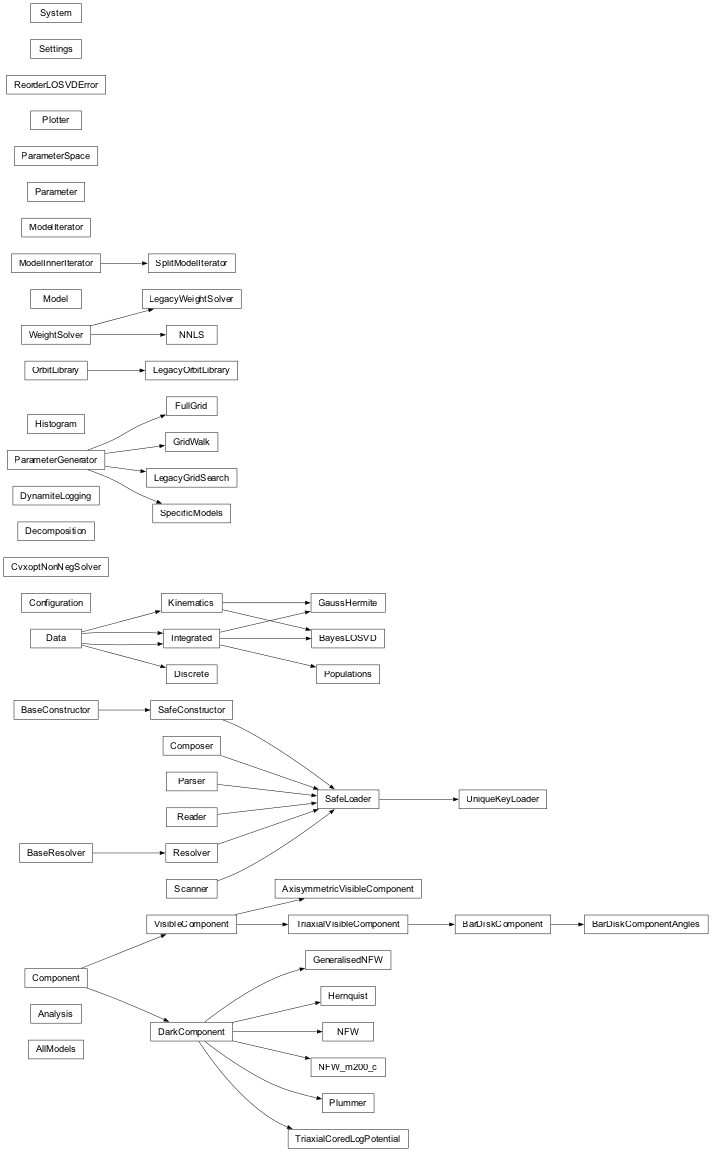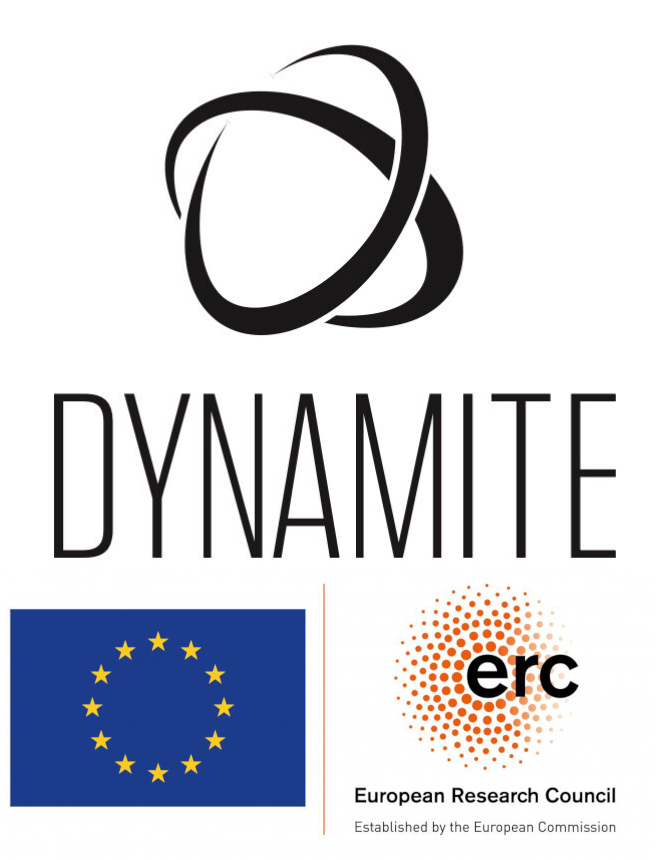API overview¶
These pages contain DYNAMITE’s API documentation, i.e. the classes and method definitions and descriptions. This may be useful for code developers, or anyone who intends to modify the code for their own personal use.
As a broad overview, a DYNAMITE run has the following steps. First, configuration file is read. This will hold all of the user-specified settings. In particular, it will create an object to store information about the physical_system being modelled (e.g. the galaxy, and its constituent components), as well as any observational data, e.g. mges and kinematics. A set of parameters is required to define a model. For a given model, DYNAMITE calculates an orbit library, and then solves for the orbital weights which best reproduce the observed kinematics. This process is iterated, using algorithms to vary the model parameters till an optimum parameter set is obtained. Throughout the process plots are made to visualise the procedure, and additional plotting routines are available to use once you have found a satisfactory fit.
The following pages contain the API documentation for this procedure, and each page corresponds to a single file of DYNAMITE source code. The bottom of each page shows the inheritance diagram for that section of code.
Inheritance Diagram¶
The inheritance diagram showing class relations between all DYNAMITE classes:

